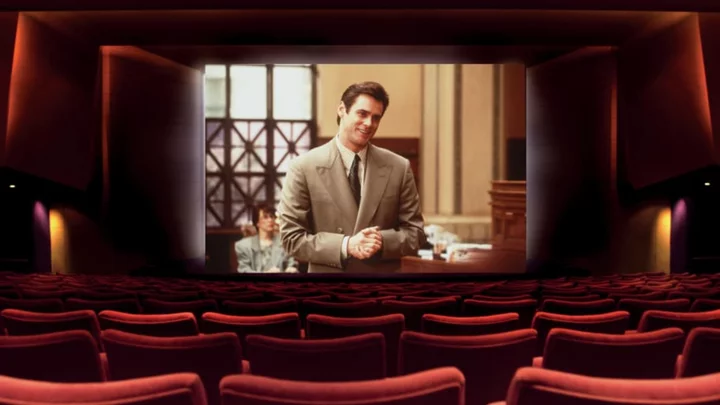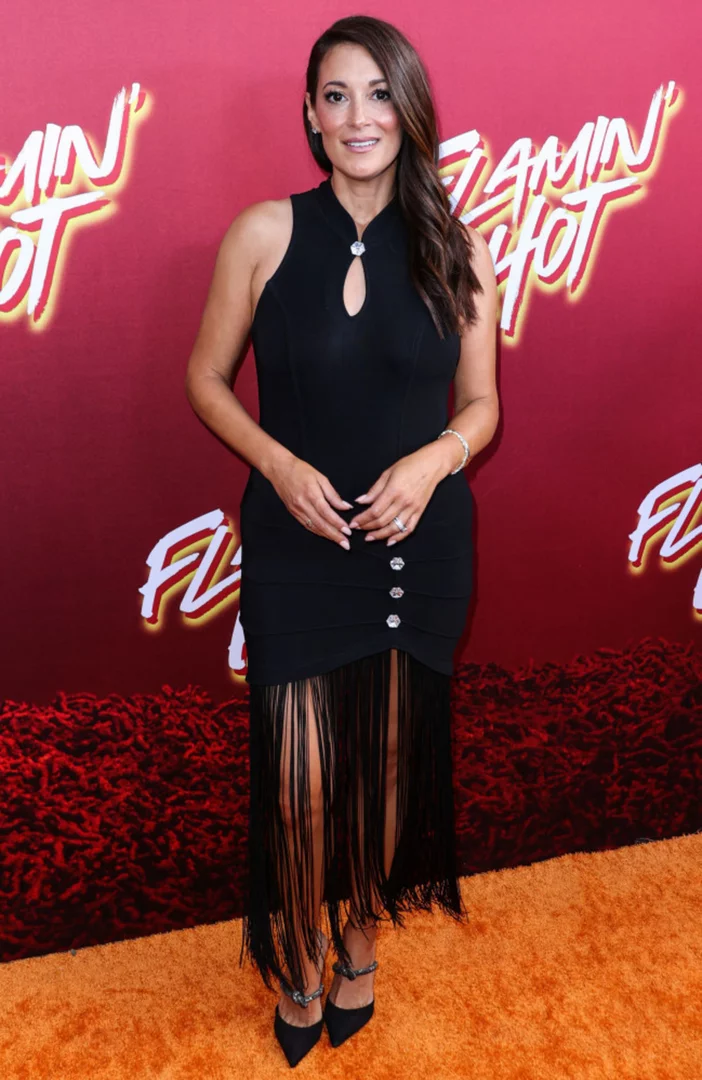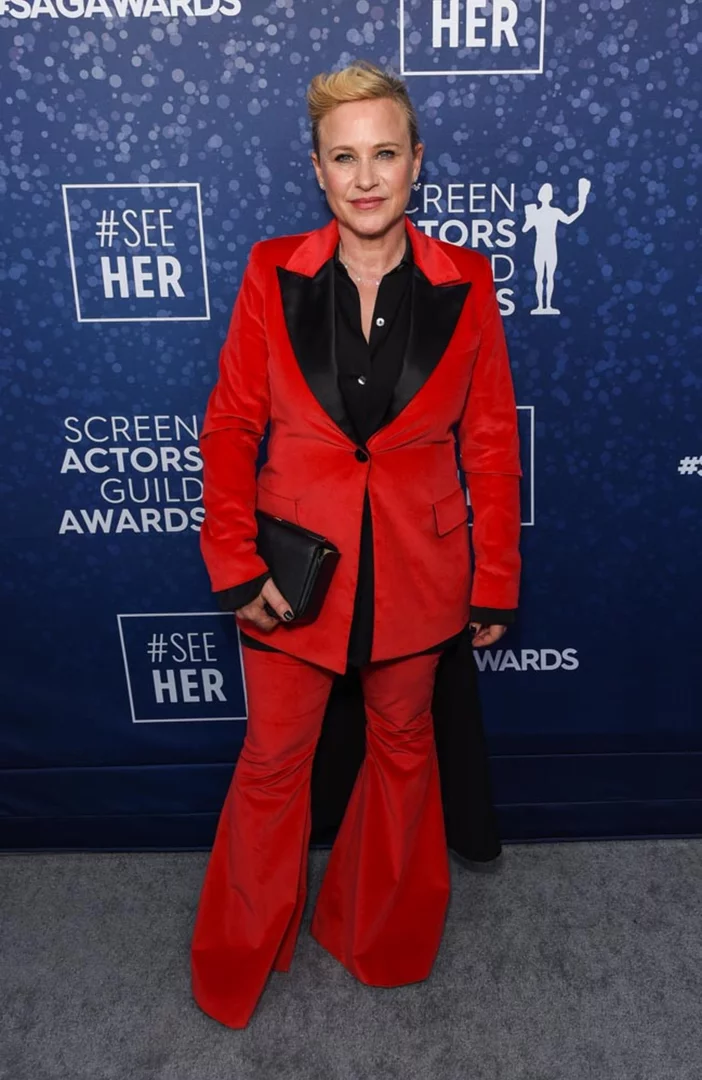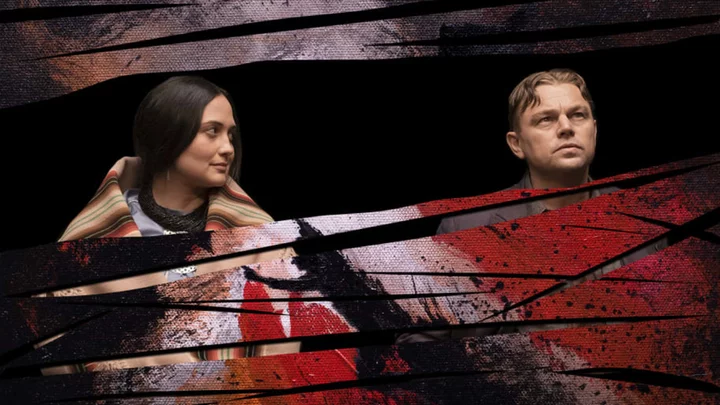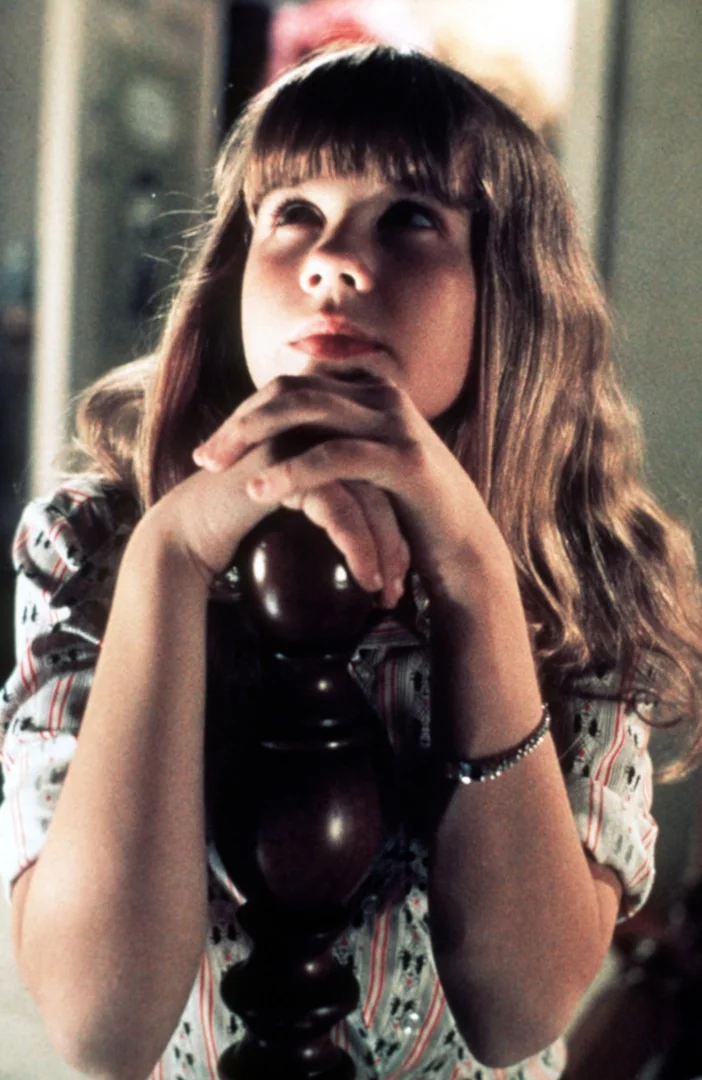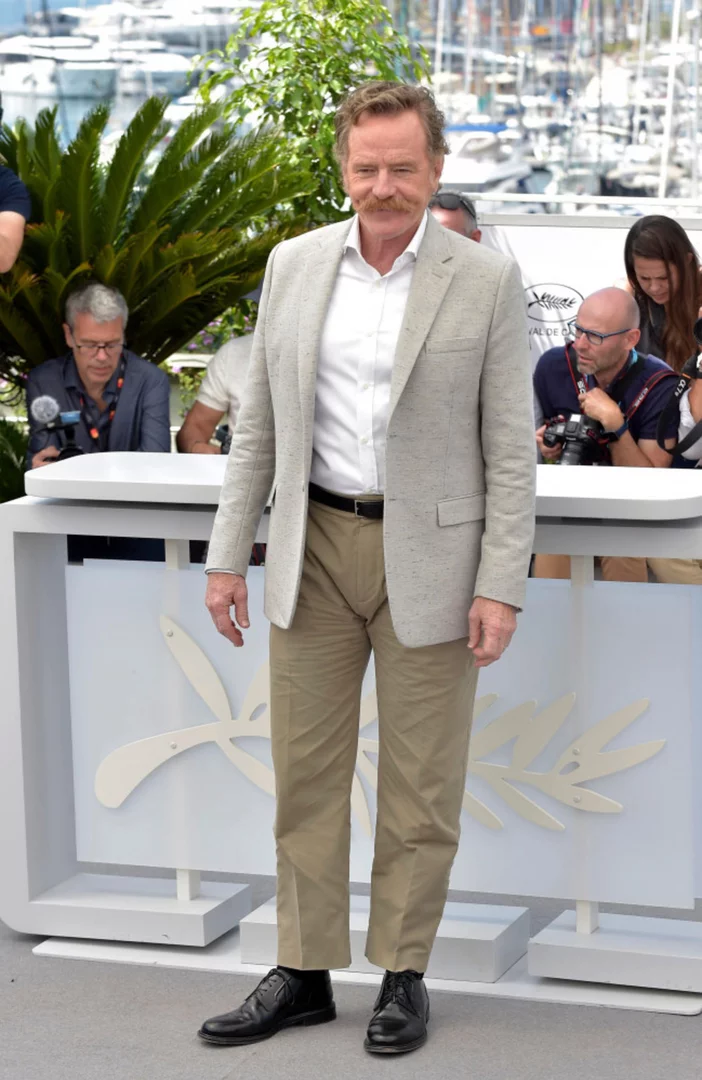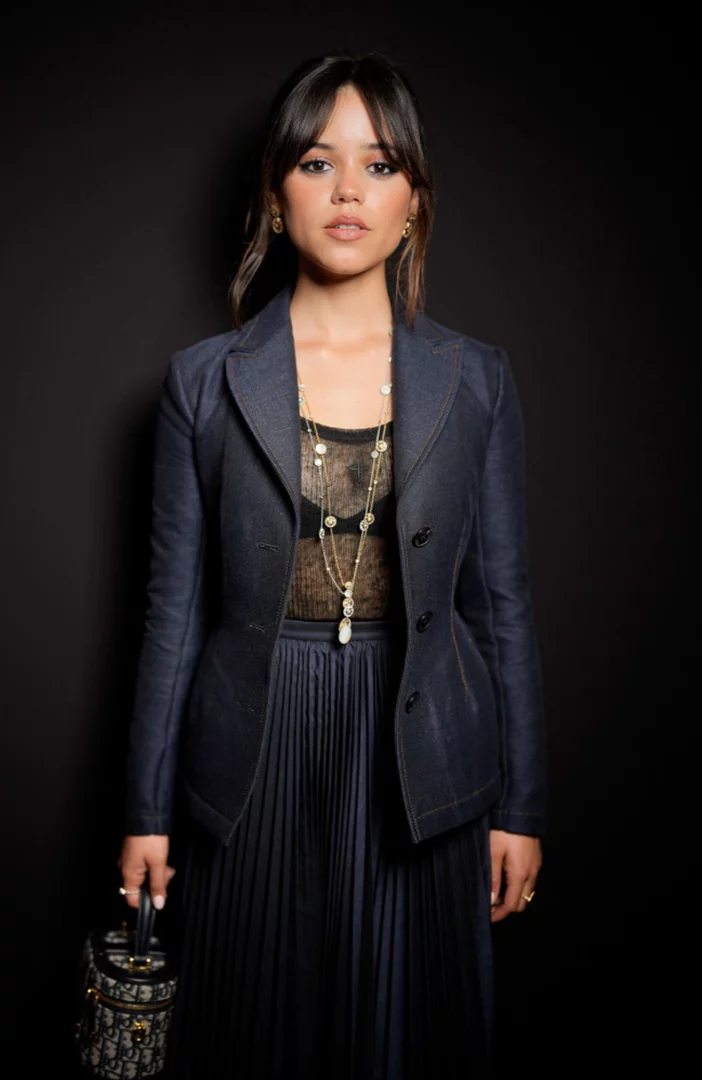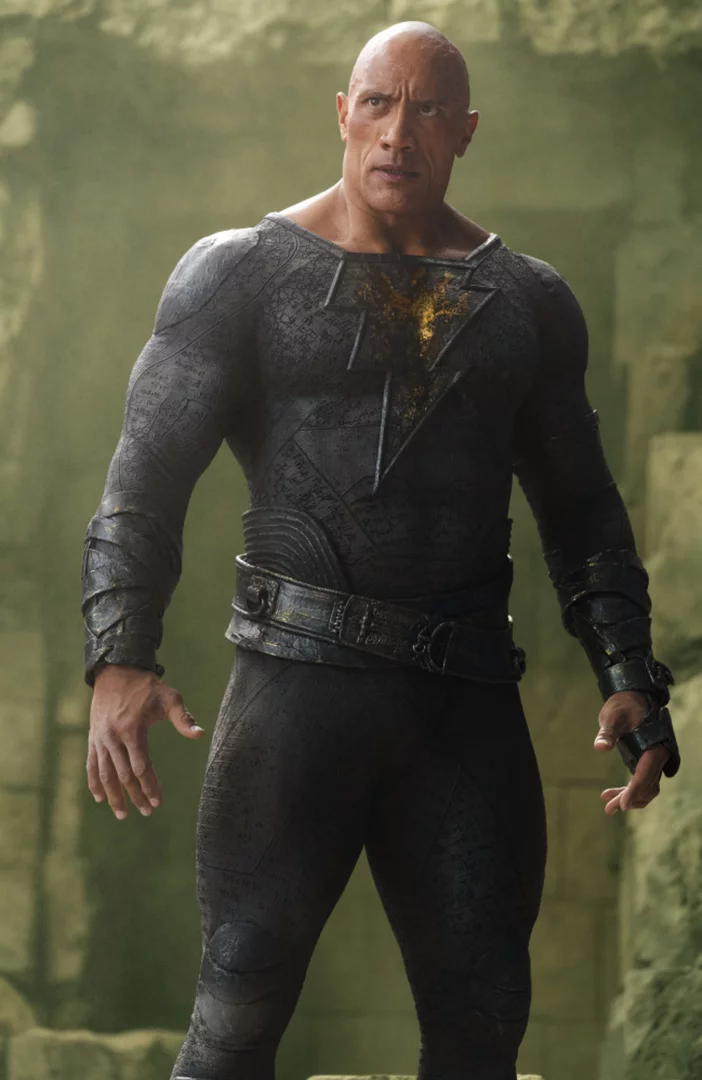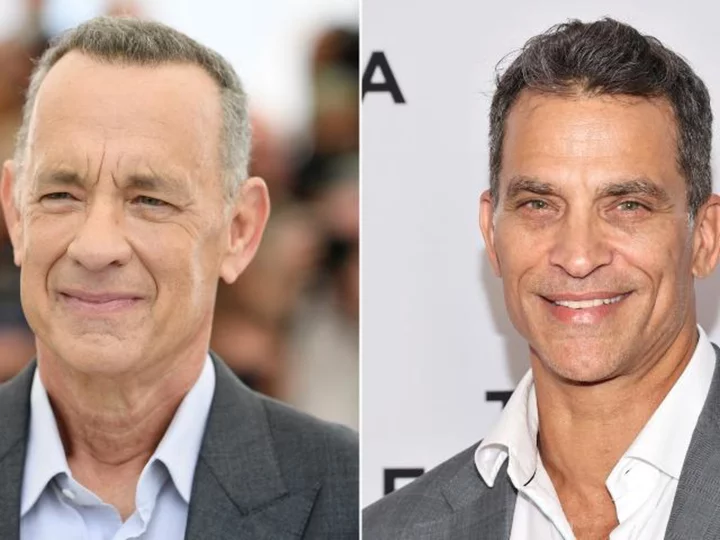Some people think Jerry Lewis is among the funniest people who ever lived. Others side with Jim Carrey, the guys from Monty Python, or Adam Sandler. And no one is wrong: Comedy is highly subjective. What may be amusing to you prompts stone-faced stares from others, and vice versa. So when a comedic film manages to win over critics and audiences, it’s about as close as you can get to a comic consensus—even though changing tastes may eventually dismiss it as dated.
Acknowledging that “funniest” is a moving target, we’ve nonetheless made an attempt to chronicle the best comedies for each of the past 72 years, beginning in 1950. The films listed aren’t necessarily our personal picks, but instead the will of the people: Examining the live-action comedies released each year, we looked at which films garnered the highest praise via their Rotten Tomatoes critical score and IMDb viewer rating. If the race was too close to call, we then factored in Oscar recognition—though the Academy has traditionally been reticent to reward the comedy genre.
In later decades, when box office grosses were well-documented, we considered financial success. (Home Alone may not have been the best-reviewed comedy of 1990, but it’s hard not to argue it made the most people laugh.) And for some years, a film’s place in the zeitgeist or its influence on comedy took precedence over raves or ticket sales.
The following are the comedies that (arguably) garnered the most laughs in a given year.
The 1950s
1950: Born Yesterday
Tomatometer: 97 percent
IMDb Rating: 7.5/10
Judy Holliday wowed audiences as a “ditzy” blonde who turns out to be much smarter than anyone conspiring against her in this political comedy. Holliday won the Oscar for Best Actress, beating the likes of Gloria Swanson (Sunset Boulevard) and Bette Davis (All About Eve).
1951: Abbott and Costello Meet the Invisible Man
Tomatometer: 80 percent
IMDb Rating: 6.6/10
Bud Abbott and Lou Costello continued their long-running film series that sees the duo encountering various Universal monsters. The year also marked the release of Bedtime for Bonzo, possibly the only time a future president (Ronald Reagan) co-starred with a chimpanzee.
1952: Singin’ in the Rain
Tomatometer: 100 percent
IMDb Rating: 8.3/10
While not strictly a comedy, Singin’ the Rain packed plenty of laughs in between—and within—its musical set pieces. The film, led by Gene Kelly, also garnered two Oscar nominations: one for Best Musical Score and one for Best Supporting Actress (Jean Hagen).
1953: Roman Holiday
Tomatometer: 95 percent
IMDb Rating: 8.0/10
Gregory Peck and Audrey Hepburn headline this romantic caper about a princess who falls for a journalist in Rome. It won Oscars for Hepburn, costume design, and Dalton Trumbo’s screenplay. (Trumbo wrote it under a pseudonym to evade the Hollywood blacklist.)
1954: Sabrina
Tomatometer: 94 percent
IMDb Rating: 7.6/10
Audrey Hepburn comes between siblings Humphrey Bogart and William Holden in this comedy classic directed by Billy Wilder. It was remade (to considerably less praise) in 1994 with Harrison Ford, Greg Kinnear, and Julia Ormond.
1955: The Seven-Year Itch
Tomatometer: 84 percent
IMDb Rating: 7.1/10
Both The Seven-Year Itch and The Trouble With Harry are considered classic comedies, but Harry—director Alfred Hitchcock’s rare attempt at a comedy—was a box office flop. The Seven-Year Itch, another Billy Wilder hit, features Marilyn Monroe as an apartment dweller simply known as The Girl who tempts her married neighbor (Tom Ewell) while his family is away.
1956: The Girl Can’t Help It
Tomatometer: 82 percent
IMDb Rating: 6.8/10
Bombshell Jayne Mansfield headlines this show business satire, with Mansfield’s gangster boyfriend plotting to make her a singing star.
1957: Will Success Spoil Rock Hunter?
Tomatometer: 87 percent
IMDb Rating: 7.0/10
Jayne Mansfield had another hit as a marquee actress who agrees to star in an ad campaign for a beauty product if an ad executive (Tony Randall) agrees to help her make boyfriend (Mickey Hargitay) jealous. The chemistry between Mansfield and Hargitay was believable for a reason—the two were married in real life (SVU star Mariska Hargitay is their daughter).
1958: Auntie Mame
Tomatometer: 88 percent
IMDb Rating: 7.9/10
Rosalind Russell took her hit stage role to the big screen as an eccentric who must care for her orphaned nephew. The film was nominated for six Oscars, including Russell for Best Actress and Best Picture.
1959: Some Like It Hot
Tomatometer: 94 percent
IMDb Rating: 8.2/10
Billy Wilder closed out a productive decade by once again enlisting Marilyn Monroe for a farce, this one about two eyewitnesses to a mob hit (Jack Lemmon, Tony Curtis) who formulate their own witness protection plan by posing as women. The film earned six Oscar nods, and won for Best Costume Design.
The 1960s
1960: The Apartment
Tomatometer: 93 percent
IMDb Rating: 8.3/10
Jack Lemmon is an office gopher who capitulates to womanizing boss Fred McMurray by letting executives use his apartment for trysts. It’s one of the few comedies to win a Best Picture Oscar.
1961: Breakfast at Tiffany’s
Tomatometer: 88 percent
IMDb Rating: 7.6/10
Audrey Hepburn jumps off the screen as an escort who reconsiders her plan to marry wealthy when she meets new neighbor George Peppard. Hepburn scored one of the movie’s five Oscar nominations.
1962: Mr. Hobbs Takes a Vacation
Tomatometer: 80 percent
IMDb Rating: 6.8/10
A somewhat weak year for comedies was brightened by this Jimmy Stewart vehicle about a banker who embarks on an ill-fated family getaway.
1963: It’s a Mad, Mad, Mad, Mad World
Tomatometer: 71 percent
IMDb Rating: 7.5/10
The same year Peter Sellers kicked off his long tenure as bumbling Inspector Clouseau in The Pink Panther, audiences flocked instead to this cameo-filled road trip epic.
1964: Dr. Strangelove or: How I Learned to Stop Worrying and Love the Bomb
Tomatometer: 98 percent
IMDb Rating: 8.4/10
By any metric, Stanley Kubrick’s razor-sharp satire of warmongering politicians was 1964’s comedy standout—though it did lose the Oscar for Best Picture to the musical My Fair Lady.
1965: Cat Ballou
Tomatometer: 90 percent
IMDb Rating: 6.8/10
Lee Marvin won an Oscar for his dual roles: one as a gunslinger who finds himself a target of vengeance after killing Jane Fonda’s rancher father, and the other as a mercenary hired by Fonda.
1966: The Fortune Cookie
Tomatometer: 96 percent
IMDb Rating: 7.2/10
Jack Lemmon’s first pairing with Walter Matthau resulted in Matthau scoring an Oscar for Best Supporting Actor. Lemmon is a TV cameraman injured on the job; Matthau is his conniving brother-in-law who wants to cash in.
1967: The Graduate
Tomatometer: 86 percent
IMDb Rating: 8.0/10
Dustin Hoffman became a movie star in this comedy about a young man with his entire life ahead of him and little idea of what to do with it. Mike Nichols earned an Oscar for Best Director, and the film outperformed other comedies that year with $105 million at the box office.
1968: The Producers
Tomatometer: 98 percent
IMDb Rating: 7.6/10
In a banner year for comedies that saw The Producers, The Odd Couple, and Funny Girl stand out, it’s hard to pick just one. But Mel Brooks’s send-up of Broadway grabbed a Best Original Screenplay win, while The Odd Couple fell to The Lion in Winter in the Best Adapted Screenplay category. Funny Girl is the only one of the three to earn a Best Picture nomination, but the Barbra Streisand classic might be more musical than comedy.
1969: Bob & Carol & Ted & Alice
Tomatometer: 82 percent
IMDb Rating: 6.7/10
Co-writer and director Paul Mazursky helped usher in frank talk about sex in this dramedy about two couples who exchange marriage advice, among other things. Mazursky and co-writer Larry Tucker got an Oscar nomination for Best Original Screenplay.
The 1970s
1970: M*A*S*H
Tomatometer: 84 percent
IMDb Rating: 7.4/10
Robert Altman directed this wry examination of the Korean War that later led to a successful television spin-off. It lost the Best Picture Oscar that year to a far more serious war film: Patton.
1971: Harold and Maude
Tomatometer: 86 percent
IMDb Rating: 7.9/10
Bud Cort and Ruth Gordon make an unlikely couple in this story of a 20-year-old (Cort) who finds himself drawn to 80-year-old Gordon. Audiences also liked the Western spoof Support Your Local Gunfighter and Woody Allen's Bananas.
1972: What’s Up, Doc?
Tomatometer: 89 percent
IMDb Rating: 7.7/10
Audiences were too busy gasping at The Godfather and The Poseidon Adventure to flock to comedies in big numbers, but What’s Up, Doc? managed to carve out space to make it the year’s third highest-grossing film. In Doc, Barbra Streisand and Ryan O’Neal pay homage to the screwball comedies of the ‘30s—all thanks to some misplaced luggage.
1973: The Sting
Tomatometer: 92 percent
IMDb Rating: 8.3/10
Paper Moon, Sleeper, American Graffiti, and The Sting all arrived in theaters in 1973, making it a terrific year for comedies. But The Sting—a 1930s-set comedy caper about two hustlers starring Paul Newman and Robert Redford—scored a Best Picture win as well as the year’s second-highest box office tally ($159 million). Only the decidedly unhumorous The Exorcist made more.
1974: Blazing Saddles
Tomatometer: 90 percent
IMDb Rating: 7.7/10
The year 1974 was a battle of Mel Brooks classics: Young Frankenstein and Blazing Saddles. Both also garnered Oscar nominations: Madeline Kahn for Saddles, and Brooks and Gene Wilder for Young Frankenstein. But Blazing Saddles and its outlandish skewering of Western tropes beat Brooks’s take on the Mary Shelley legend at the box office, grossing $120 million to become the year’s biggest film. (Young Frankenstein came in fourth.)
1975: Monty Python and the Holy Grail
Tomatometer: 96 percent
IMDb Rating: 8.2/10
Most comedy fans will point to Monty Python and the Holy Grail as 1975’s funniest movie, and who could argue? But ticket buyers preferred Shampoo, Warren Beatty’s light comedy about a hair stylist in Los Angeles, making it the year’s top comedy in terms of ticket sales. Meanwhile, Cooley High, a low-budget sleeper hit about growing up in Chicago's Cabrini-Green housing project, helped inspire future Black filmmakers Spike Lee and John Singleton. In 2021, it was added to the National Film Registry of culturally important works.
1976: The Bad News Bears
Tomatometer: 97 percent
IMDb Rating: 7.3/10
Walter Matthau growled his way through this hit comedy about a group of misfit little leaguers who need some guidance. Bears just edges out the Gene Wilder and Richard Pryor hit Silver Streak on the Tomatometer, though Silver Streak was a bigger box office hit.
1977: Annie Hall
Tomatometer: 97 percent
IMDb Rating: 8.0/10
In a banner year for comedies that included Slap Shot and The Kentucky Fried Movie—and saw most everything trounced by Star Wars—Woody Allen’s meditation on love in New York was a critical and box office success, taking home Oscars for Best Picture, Best Director, and Best Actress.
1978: National Lampoon’s Animal House
Tomatometer: 91 percent
IMDb Rating: 7.4/10
The National Lampoon brand was launched on the big screen with this raucous comedy about frat life, which was the year’s second biggest movie behind Grease. The year also saw a Cheech and Chong vehicle, Up in Smoke, as well as Warren Beatty’s critical and commercial hit Heaven Can Wait, which scored nine Oscar nominations. (Animal House was, sadly, ignored come Oscar time.)
1979: The Jerk
Tomatometer: 83 percent
IMDb Rating: 7.1/10
Steve Martin transitioned from stand-up comic to movie star with this story of Navin Johnson, a buffoon looking for meaning in his life. The Blake Edwards hit 10 and Being There were also released the same year, but The Jerk arguably has a higher laughs-per-minute ratio. It was also the year’s biggest comedy, though comic diehards may prefer the more subdued humor of Albert Brooks and his documentary-mocking Real Life.
The 1980s
1980: Airplane!
Tomatometer: 97 percent
IMDb Rating: 7.7/10
The ‘80s would mostly be home to bawdy comedies, but the decade kicked off by offering one of the best examples of the spoof genre. Airplane! stuck it to the serious airplane disaster pictures of the ‘70s and gave dramatic actor Leslie Nielsen a new career path. It also outpaced other beloved comedies that year like Caddyshack and The Blues Brothers.
1981: Arthur
Tomatometer: 89 percent
IMDb Rating: 6.9/10
While Bill Murray’s military-grade comedy Stripes was a slightly bigger hit, Arthur scored four Academy Award nominations and two wins—though how it lands for you depends on how funny you find rampant alcoholism.
1982: Tootsie
Tomatometer: 90 percent
IMDb Rating: 7.4/10
Naming 48 Hours the comedy of 1982 seems like a slam dunk, except that there’s no consensus that it’s necessarily a comedy. That film, about a con on parole for the weekend to assist a hard-nosed cop, made a star out of Eddie Murphy—but the actor himself has called it more of a drama. That leaves Tootsie, with Dustin Hoffman a struggling actor who adopts a woman’s persona to score a soap opera role.
1983: Trading Places
Tomatometer: 88 percent
IMDb Rating: 7.5/10
Eddie Murphy continued his career ascendancy as a hustler who becomes a pawn for a bet between two millionaires. At the box office, it outperformed other standout comedies like National Lampoon’s Vacation and Risky Business. (And yes, this year also saw the release of A Christmas Story, but it would take many years of cable repeats before the film caught on. It was not a major hit in theaters.)
1984: Ghostbusters
Tomatometer: 95 percent
IMDb Rating: 7.8/10
Eddie Murphy had another huge hit with Beverly Hills Cop, but the summer belonged to Ivan Reitman’s ghostbusting foursome (which Murphy had once considered co-starring in). Comedy fans also took in This Is Spinal Tap, Revenge of the Nerds, and Top Secret!
1985: Pee-wee's Big Adventure
Tomatometer: 87 percent
IMDb Rating: 7.0/10
Plenty of big comedies hit screens in 1985, including Better Off Dead, Fletch, and Lost in America. But Pee-wee’s Big Adventure ranks highest on the Tomatometer while delivering a solid $40 million box office haul. (This all presumes you find the year's top film, Back to the Future, more of a sci-fi adventure than a comedy.)
1986: Crocodile Dundee
Tomatometer: 89 percent
IMDb Rating: 6.6/10
While Ferris Bueller’s Day Off is critically lauded, the Australian-out-of-Australia tale Crocodile Dundee was the biggest comedy of the year. It even scored an Oscar nomination for Best Original Screenplay for star and writer Paul Hogan.
1987: Moonstruck
Tomatometer: 92 percent
IMDb Rating: 7.1/10
Beverly Hills Cop II was the year’s top comedy earner, but few critics or audience members considered it a highlight of Eddie Murphy’s career. The year actually brought an embarrassment of comic highlights, including Raising Arizona, Three Men and a Baby, and Planes, Trains and Automobiles, the latter of which was only a minor hit upon its theatrical release. But it was Moonstruck that struck the balance of critical acclaim with audience satisfaction as well as Oscar recognition, including one award each for Cher, Olympia Dukakis, and Best Original Screenplay.
1988: Who Framed Roger Rabbit
Tomatometer: 97 percent
IMDb Rating: 7.7/10
Another monster year for comedy classics arrived in 1988, with Coming to America, Dirty Rotten Scoundrels, Scrooged, Beetlejuice, Big, and The Naked Gun all playing in theaters. But it was Who Framed Roger Rabbit and its inventive blend of live-action and animation that became the highest-grossing movie of the year.
1989: When Harry Met Sally…
Tomatometer: 91 percent
IMDb Rating: 7.7/10
The babbling baby movie Look Who’s Talking was a comedy monster at the box office, but critics weren’t kind. National Lampoon’s Christmas Vacation grossed a respectable $60 million and outpaced other comedies (Turner and Hooch, Uncle Buck) of the year, but nothing could compete with the romantic comedy hit When Harry Met Sally… for raves as well as a big box office haul.
The 1990s
1990: Home Alone
Tomatometer: 66 percent
IMDb Rating: 7.7/10
It’s true other comedies drew bigger critical raves in 1990, but nothing could stop Home Alone and Macaulay Culkin from demolishing the competition at the box office. It was also a good year for Reginald Hudlin, whose House Party spoke to an underserved hip-hop culture. (It was House Party, not Home Alone, that was added to the National Film Registry in 2022.)
1991: City Slickers
Tomatometer: 89 percent
IMDb Rating: 6.8/10
Billy Crystal headlines this tale of disenfranchised urbanites who try to rediscover themselves by joining a cattle drive. The film was the biggest comedy of the year, earning $131 million and co-star Jack Palance an Oscar for Best Supporting Actor.
1992: Wayne’s World
Tomatometer: 79 percent
IMDb Rating: 7.0/10
Home Alone 2: Lost in New York made a predictable fortune, but even fans didn’t feel it measured up to the first. That leaves Wayne’s World and Sister Act in a bit of a dead heat. Though Sister Act grossed more, Wayne's World and its party on philosophy became a cultural sensation.
1993: Groundhog Day
Tomatometer: 94 percent
IMDb Rating: 8.0/10
Bill Murray scored one of the biggest hits of his career as jaded weatherman Phil, who has to live each day over and over until he learns the error of his cantankerous ways. The year’s other major comedy has also endured: Mrs. Doubtfire.
1994: The Mask
Tomatometer: 80 percent
IMDb Rating: 6.9/10
Jim Carrey stretched from In Living Color to movies in 1994 in a pretty major way, by releasing three consecutive hits: Ace Ventura: Pet Detective, The Mask, and Dumb and Dumber. The Mask stands as the best-reviewed of the three, though Dumb and Dumber made a bit more.
1995: Friday
Tomatometer: 76 percent
IMDb Rating: 7.2/10
Ice Cube and Chris Tucker’s hangout movie didn’t match the box office of Ace Ventura: When Nature Calls, but it enjoyed a significantly warmer critical reception. Chris Farley fans, meanwhile, got a kick out of Tommy Boy.
1996: Fargo
Tomatometer: 94 percent
IMDb Rating: 8.1/10
The Coens directed Francis McDormand to an Oscar win as Marge Gunderson, a very pregnant cop looking to solve the disappearance of a Midwest local. The Coens also took home a statue for Best Original Screenplay.
1997: Liar Liar
Tomatometer: 83 percent
IMDb Rating: 6.9/10
Jim Carrey found the perfect vehicle in the story of a lawyer who discovers—thanks to his son’s birthday wish—that he’s no longer able to tell a lie. It was the year’s biggest comedy at the box office, making nearly four times as much as Austin Powers: International Man of Mystery and third highest-grossing overall after Men in Black and The Lost World: Jurassic Park.
1998: There’s Something About Mary
Tomatometer: 84 percent
IMDb Rating: 7.1/10
The Farrelly brothers assembled this audience-pleasing hit about a man (Ben Stiller) pining for his high school crush (Cameron Diaz). The film sold more tickets than other prominent ’98 comedies The Waterboy and cult-classic-to-be The Big Lebowski.
1999: Galaxy Quest
Tomatometer: 90 percent
IMDb Rating: 7.4/10
Austin Powers: The Spy Who Shagged Me, Analyze This, and Big Daddy were big in theaters but received a muted critical response. That was not the case with Galaxy Quest, a smart send-up of the sci-fi genre, with Tim Allen leading a crew of television space explorers mistaken by aliens for the real thing.
The 2000s
2000: Meet the Parents
Tomatometer: 84 percent
IMDb Rating: 7.0/10
Following Analyze This, Robert De Niro had another winning comedy year, this time as an ex-intelligence operative tormenting future son-in-law (Ben Stiller). Meet the Parents topped other comedies including Big Momma’s House, Scary Movie, and Nutty Professor II: The Klumps.
2001: Legally Blonde
Tomatometer: 71 percent
IMDb Rating: 6.4/10
While the year’s biggest comedy was American Pie 2, Legally Blonde got the warmer welcome from critics in 2001. The year also saw the debut of Zoolander, but its theatrical release in the shadow of 9/11 meant it didn’t get noticed until later.
2002: My Big Fat Greek Wedding
Tomatometer: 76 percent
IMDb Rating: 6.6/10
This indie comedy about a woman who tries to make sure her new boyfriend fits in with her Greek family was a surprise hit, outgrossing even the third Austin Powers movie and earning an Oscar nomination for star Nia Vardalos’s original screenplay. The other surprise of the year: Barbershop, a cutting comedy with Ice Cube that spawned a franchise.
2003: Elf
Tomatometer: 85 percent
IMDb Rating: 7.1/10
Unlike some holiday classics, Will Ferrell’s Elf was a hit out of the gate. The actor also had Old School out that same year.
2004: Mean Girls
Tomatometer: 84 percent
IMDb Rating: 7.1/10
Cult hits like Anchorman and Napoleon Dynamite saw their reputations grow over time, but Mean Girls garnered critical and commercial success immediately following its release (even though it still couldn’t make fetch happen). Chris Rock, meanwhile, got some of the best reviews of his career with Top Five, which he also wrote and directed.
2005: Wedding Crashers
Tomatometer: 75 percent
IMDb Rating: 7.0/10
Vince Vaughn and Owen Wilson are bachelors on the prowl in this massive hit. The 40-Year-Old Virgin also drew critical raves, but Wedding Crashers virtually doubled the gross of the Steve Carell film.
2006: Borat: Cultural Learnings of America for Make Benefit Glorious Nation of Kazakhstan
Tomatometer: 90 percent
IMDb Rating: 7.4/10
Nice! Sacha Baron Cohen’s immersive travelogue blew up the box office. Critically, it far surpassed the notices for Will Ferrell’s Talladega Nights (which Cohen co-starred in) and Adam Sandler’s Click.
2007: Knocked Up
Tomatometer: 89 percent
IMDb Rating: 6.9/10
Seth Rogen had a terrific 2007, with both Knocked Up and Superbad doing well. It was Knocked Up and its story of unlikely couple Rogen and Katherine Heigl that made $148 million. Both were eclipsed by The Simpsons Movie, which makes a strong case for the top spot but is hobbled by our live-action-only mandate.
2008: Tropic Thunder
Tomatometer: 82 percent
IMDb Rating: 7.1/10
What makes Ben Stiller’s send-up of self-serious actors mistaken for real soldiers 2008’s standout comedy over Forgetting Sarah Marshall and Step Brothers? In addition to nabbing $110 million in theaters, it also led to co-star Robert Downey Jr. receiving an Oscar nomination for Best Supporting Actor, a rare Academy nod for a comic performance.
2009: The Hangover
Tomatometer: 79 percent
IMDb Rating: 7.7/10
With apologies to Paul Blart: Mall Cop, there’s no denying that The Hangover and its crowd-pleasing ensemble led by Bradley Cooper was the standout comedy of the year. But viewers who dug a little deeper found a cult favorite in Black Dynamite, Michael Jai White’s send-up of '70s Blaxploitation films.
The 2010s
2010: The Other Guys
Tomatometer: 79 percent
IMDb Rating: 6.6/10
The Will Ferrell and Mark Wahlberg cop buddy comedy didn’t move quite as many tickets as Adam Sandler’s Grown Ups, but got much warmer critical notices. Also out this year: Hot Tub Time Machine and MacGruber.
2011: Bridesmaids
Tomatometer: 89 percent
IMDb Rating: 6.8/10
Comedy’s biggest movie in 2011 was The Hangover: Part II, though critics didn’t seem to think so. Bridesmaids wasn’t far behind, with $170 million as well as two Oscar nominations for Best Original Screenplay and Best Supporting Actress (Melissa McCarthy).
2012: 21 Jump Street
Tomatometer: 85 percent
IMDb Rating: 7.2/10
Jonah Hill’s revisionist take on the Johnny Depp undercover cop TV drama was one of 2012’s best-reviewed comedies, though it was beaten at the box office by the foul-mouthed teddy bear at the heart of Ted.
2013: Anchorman 2: The Legend Continues
Tomatometer: 75 percent
IMDb Rating: 6.3/10
Will Ferrell returned as aloof broadcaster Ron Burgundy in this belated sequel, which drew a positive critical reaction compared to higher-grossing comedies The Heat and We’re the Millers.
2014: What We Do in the Shadows
Tomatometer: 96 percent
IMDb Rating: 7.6/10
Taika Waititi and Jemaine Clement’s vampire mockumentary is widely beloved, but it didn’t bite much out of the box office (though its reputation would change in 2019, when a small-screen offshoot of the movie premiered). The year’s highest-grossing comedy was 22 Jump Street.
2015: Spy
Tomatometer: 95 percent
IMDb Rating: 7.0/10
Melissa McCarthy’s spy romp—co-starring a suddenly funny Jason Statham—was a hit with critics and audiences, though the top-grossing comedy of the year was Pitch Perfect 2.
2016: Deadpool
Tomatometer: 85 percent
IMDb Rating: 8.0/10
This meta Marvel Comics adaptation was the year’s highest grossing comedy, well ahead of fellow action-comedies Ghostbusters and Central Intelligence.
2017: Girls Trip
Tomatometer: 92 percent
IMDb Rating: 6.2/10
A road trip to New Orleans turns unpredictable in this vehicle for Regina Hall, Queen Latifah, Tiffany Haddish, and Jada Pinkett Smith. The film earned more than $115 million. Less financially successful but also lauded: Greta Gerwig's Oscar-nominated Lady Bird.
2018: Sorry to Bother You
Tomatometer: 93 percent
IMDb Rating: 6.9/10
Boots Riley helmed this razor-sharp social satire of a telemarketer (LaKeith Stanfield) who finds success climbing the corporate ladder under unconventional circumstances. Audiences also liked the Jason Bateman hit Game Night.
2019: Dolemite Is My Name
Tomatometer: 97 percent
IMDb Rating: 7.2/10
The comedy story of the year was Eddie Murphy’s return to R-rated fare in Netflix’s biopic of ’70s pioneering Black filmmaker Rudy Ray Moore. Meanwhile, Beanie Feldstein and Kaitlyn Dever graduated high school in Olivia Wilde’s Booksmart, which won over critics but couldn’t surmount the box office take of films like Tyler Perry’s A Madea Family Funeral, Good Boys, or Zombieland: Double Tap.
The 2020s
2020: Borat: Subsequent Moviefilm
Tomatometer: 85 percent
IMDb Rating: 6.6/10
A follow-up to 2006’s Borat sees Sacha Baron Cohen returning to America, this time with his daughter Tutar (Maria Bakalova) in tow. Bakalova got a Best Supporting Actress nomination for her semi-improvised role.
2021: Licorice Pizza
Tomatometer: 91 percent
IMDb Rating: 7.2/10
Paul Thomas Anderson got a warm welcome for this coming-of-age story about teens in the San Fernando Valley circa the early 1970s. Though it was not a theatrical success, it managed three Academy Award nominations, including Best Picture, Best Original Screenplay, and Best Director.
2022: The Lost City
Tomatometer: 79 percent
IMDb Rating: 6.1/10
Sandra Bullock and Channing Tatum’s romantic adventure was a top live-action comedy hit. You could always swap it out for the Oscar-winning Everything Everywhere All at Once, though that film defies being categorized within any single genre.
This article was originally published on www.mentalfloss.com as The Funniest Movie the Year You Were Born.

